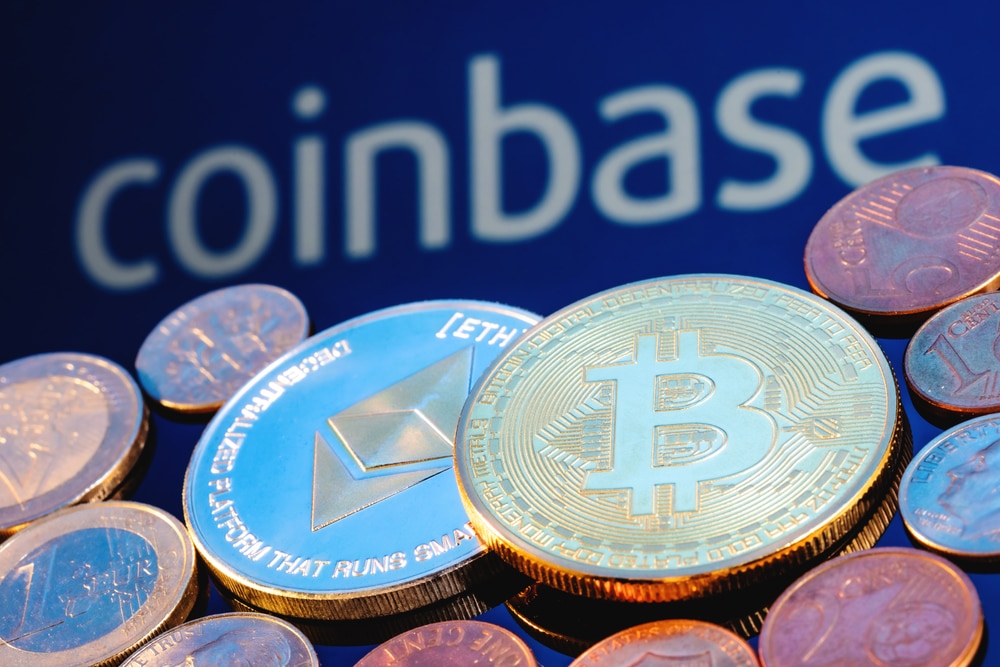Coinbase Faces €21.5 Million Fine from Irish Regulators Over AML Oversight
Coinbase Faces €21.5 Million Fine from Irish Regulators Over AML Oversight
By
Junia Wells
Last updated:
November 6, 2025
First Published:
December 2, 2025

Photo: 99Bitcoins
A Wake-Up Call for the Crypto Industry
Coinbase, one of the world’s largest cryptocurrency exchanges, has been fined €21.5 million by Ireland’s Central Bank for failing to properly monitor transactions under anti-money laundering laws. This development marks a serious turning point in the relationship between regulators and crypto platforms operating in Europe. For an industry that has long navigated the blurred lines of compliance, this penalty underscores a clear message—crypto must now play by the same rules as traditional finance.
The Root of the Fine
According to the investigation, Coinbase’s Irish branch was found to have significant shortcomings in its monitoring systems for suspicious transactions. Over thirty thousand transfers reportedly bypassed proper compliance review. Regulators argued that the lapses could have allowed potential illicit activity to go unnoticed. Though no evidence of direct wrongdoing was found, the scale of oversight failures raised serious concerns about internal controls within one of crypto’s most prominent institutions.
How It Reflects a Broader Pattern
This penalty is not an isolated case. It represents part of a broader wave of regulatory enforcement sweeping through the digital asset space. Governments worldwide are tightening anti-money laundering and counter-terrorism financing laws for crypto service providers. The European Union’s new MiCA framework, alongside Ireland’s strict local supervision, has empowered regulators to demand the same level of diligence from crypto firms as they do from banks and payment institutions.
Coinbase’s Response to the Sanction
In response, Coinbase issued a statement expressing its commitment to improving compliance standards and strengthening its European oversight infrastructure. The company acknowledged that its rapid global expansion may have contributed to the gaps in monitoring. It has since begun investing heavily in upgraded transaction surveillance technology, enhanced employee training, and partnerships with regulatory technology providers. Coinbase’s goal now is to transform this penalty into a case study in corporate reform.
The Shift Toward Regulatory Maturity
The fine serves as a symbol of the crypto market’s regulatory evolution. In its early years, crypto thrived on minimal oversight, often operating in a gray area where innovation outpaced legislation. That era is now ending. Authorities no longer see crypto as an unregulated novelty—they view it as a legitimate part of the financial system that must meet the same compliance benchmarks as traditional institutions. This transition, though challenging, could ultimately legitimize the entire digital asset ecosystem.
Ireland’s Growing Role in the Global Crypto Landscape
Ireland’s prominence as a European base for tech and fintech firms has made it a central hub for major crypto exchanges. Its decision to impose a fine of this scale signals that the nation intends to lead in regulatory rigor, not leniency. By doing so, Ireland strengthens its position as a responsible digital finance jurisdiction that values transparency over unchecked growth. The country’s central bank is now shaping a blueprint for how crypto can coexist with established financial norms.
Investor Confidence and Market Repercussions
While some viewed the penalty as a blow to Coinbase’s reputation, others believe it might have the opposite effect in the long term. Investors often prefer clarity and accountability over uncertainty. By addressing compliance gaps head-on, Coinbase could actually reinforce trust among institutional clients and regulators. Short-term turbulence may give way to stronger foundations as the company rebuilds its credibility in the European market.
A Lesson for the Entire Industry
Other exchanges are watching closely. The fine acts as a warning and a lesson—compliance is no longer optional or reactive. Exchanges must implement proactive monitoring, transparent reporting, and real-time auditing systems to avoid similar scrutiny. The new standard of accountability will likely push smaller, less-prepared firms out of the market, while encouraging mature players to invest in robust governance.
The Future of Crypto Compliance
The Coinbase case may mark the beginning of a new compliance era for the digital asset industry. Regulators are no longer chasing the market; they are shaping it. Future exchanges will likely operate in a world of continuous oversight, where algorithmic transaction monitoring and automated reporting become the norm. The firms that adapt fastest will emerge as the new leaders of the next crypto generation.
Beyond the Fine: A Redefinition of Trust
Ultimately, this event goes beyond a financial penalty—it represents a redefinition of trust in the crypto world. Compliance and transparency are becoming the new currencies of legitimacy. Coinbase’s experience in Ireland is a reminder that growth without governance is unsustainable. As the crypto industry matures, those who embrace accountability will not only survive but lead the transformation toward a fully integrated digital financial future.
Popular articles
Subscribe to unlock premium content
Disney’s Timeless Magic and How the Entertainment Giant Continues to Shape Culture and Innovation

Imran Khan’s Economic Missteps Amid Political Chaos in Pakistan

The Philippines’ Digital Shift How Remittances and BPO Are Fueling Growth

Disney’s Timeless Magic and How the Entertainment Giant Continues to Shape Culture and Innovation

Imran Khan’s Economic Missteps Amid Political Chaos in Pakistan

Disney’s Timeless Magic and How the Entertainment Giant Continues to Shape Culture and Innovation









